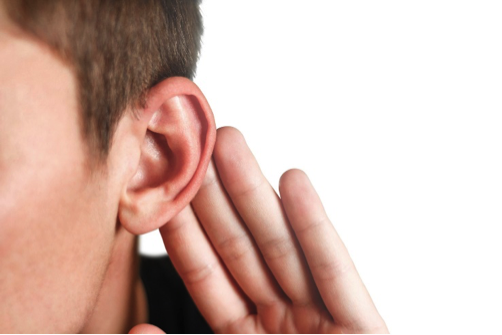We have talked a lot about the importance of getting your hearing tested. We explained what goes into a hearing test and why you shouldn’t put off your hearing test any longer. We have gone in depth on the cost of procrastination with it comes to untreated hearing loss. But the question that we haven’t tackled yet; how do I know if I have hearing loss? While the answer to this question seems simple, I want to outline some warning signs for hearing loss. That way you will know what to look for in yourself or in a loved one.

Everyday over 48 million Americans deal with the effects of hearing loss. This problem is far reaching and effecting younger and younger people every day. Men are twice as likely to be affected by hearing loss than their female counterparts. The average person waits 15 years after they think they have hearing loss and seven years after they have been diagnosed to take action to correct their hearing loss. What do all these statistics mean? It means that there are a lot ore people dealing with hearing loss than want to admit it.

First, let’s talk about the obvious warning signs of hearing loss. These are the ones that when brought up, cause people to roll their eyes and say “well of course”. But as I list off some of these, take stock of your everyday life. Do any of these warning signs apply to you? How about your spouse? Or your parents?
The first thing that we look for is increasing of the volume on the television or telephone. While this is an obvious warning sign it is also very telling. We can’t hear, so we are taking action to correct the problem. Slight but consistent increases in the volume of your TV or radio, can be a sign that your hearing is changing. This is also why people stay in denial about their hearing loss. They are able to control this aspect, so they don’t seek treatment as quickly as they should. Usually these changes get us by until a spouse or friend tells us to “turn down the dang TV” because they can hear it from three rooms away.

Another obvious symptom of hearing loss is the need to have people repeat themselves. We have discussed this in depth when talking about the cost of hearing loss and its impact on our personal relationships. When we are having trouble hearing we are constantly saying “what” and “huh”. Right now, everybody reading this is probably rolling their eyes at how obvious my last sentence was. But take the rest of the day and see how many times you are forced to have somebody repeat what they said. I bet the result surprises you.

Muffled speech is the next thing to be on the look out for. This is why many people who are in denial about their hearing loss will say, “people just need to speak for clearly and quit mumbling”. As we lose our high tone hearing, words are not as crisp and easy to understand as they used to be. These people have more of a clarity loss than a straight hearing loss. Of course, that doesn’t make basic communication any easier. Difficulty hearing in large groups goes hand in hand with this problem. As we lose that speech clarity, group conversations become exceeding difficult. We are no longer able to separate voices or distinguish speech from crowd noise. Ask anybody who has hearing loss and has eaten at a crowded restaurant just how difficult it can be to hear their friends over the rest of the people and the wait staff and the background music.
The last thing to be on the look out for is changes in your routine and behavior that have been caused by hearing loss. You may start to withdraw from conversations. You become less talkative and less social because you know how difficult basic communication can be with some people. You take less phone calls because trying to make out phone conversations is a losing proposition. Your personality can change as your start to pull back from these things. You begin to avoid certain situations all together because hearing has become such a problem. Maybe it’s the movies, or parties or restaurants in general.
When hearing loss starts changing the way you
live your life, you’ve got a major problem
This is usually the tipping point when most people bite the bullet and finally come in to get their hearing checked. They have done all they can do to compensate for and cover up their hearing loss. It has reached a point where it is affecting their day to day lives and that is usually what lights the fuse to take action.

Now most of what you just read is a bunch of warning signs you probably already knew. I would challenge you to re-read this post (it will only take an extra 5 minutes). But as you do really take a look at the warning signs. Do any of them apply to you? How about your husband or wife? What about your mother or father? Sometimes we gloss over the obvious warning signs because they are so obvious.

Don’t let hearing loss control your life when you don’t have to. Contact our office today for your free hearing evaluation.

